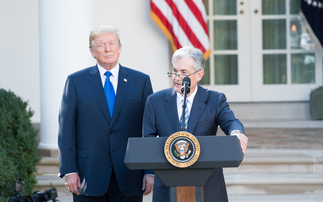
This year has certainly been challenging for investors. But from a forward-looking perspective, the good news is investors have already taken a fair deal of pain. Equity valuations are reasonable. And, when expectations are low, things only need to get no worse for markets to start to respond more positively.
So, if markets are at or approaching a turning point, where should investors be looking to allocate? At home in the UK, aggregate valuations look cheap but there are challenges amid a gloomy economic outlook. Some would argue that the case for funds with a more global approach appears stronger.
For a start, there are far more opportunities - the MSCI AC World Index has nearly 3,000 constituents, for example, compared to just 600 in the FTSE All Share. The outlook for earnings growth also looks more encouraging in other markets when compared to the UK.
Sustainability as a driver of returns
The Fidelity Sustainable Global Equity Fund is one such fund offering global equity exposure, doing so through a quality growth portfolio of 40-60 companies.
Its accompanying focus on ESG and sustainability is based on the belief that companies addressing the greatest environmental and social challenges stand to earn more positive and consistent returns over time. Or as portfolio manager Jamie Harvey puts it: "These companies are more likely to enjoy better growth opportunities and lower long-term risk profiles, and therefore have the potential to deliver strong returns to shareholders."
However, the fund not only looks for stocks with a best-in-class ESG profile - its three-step investment process also seeks to identify stocks that offer a compelling financial profile.
Specifically, step two focuses on fundamentals: finding stocks that Fidelity believes will beat consensus expectations over the medium term. Meanwhile, step three assesses whether the valuation is well supported and defendable over time, offering the potential for strong shareholder returns over a three-to-five-year period.
A common question is whether the fund's focus on sustainability creates a structural overweight to developed markets, but emerging markets are well represented. Harvey says that Asia, in particular, may generally lag behind developed markets in terms of awareness of ESG but is waking up very quickly and catching up with the rest of the world.
"This is one of the reasons why Asia is exciting for sustainable investors," he says. "Most of the positive impact comes from the improvers, and there are a lot of Asian companies in this category."
Long-term dividend growth
For those investors wishing to focus on dividends, the Fidelity Sustainable Global Equity Income Fund offers a concentrated portfolio of around 40-50 companies with long-term dividend growth potential.
It aims to generate attractive long-term dividend-based total return, deliver returns with lower risk than the broader market, and improve companies' management of sustainability issues through active ownership.
"We focus on higher-quality businesses with strong balance sheets, recurring revenue business models and earnings resilience," says portfolio manager Aditya Shivram. "These companies also exhibit strong sustainability profiles and trade at reasonable valuations."
Shivram highlights the financials sector as a particular source of opportunities, typically those businesses that are higher quality, defensive and with low balance-sheet risk.
"For example, insurance broker Marsh & McLennan benefits from a capital-light business model with predominantly non-discretionary revenues," he says.
Find out more about Fidelity's sustainable global equity funds
Important information
This information is for investment professionals only and should not be relied upon by private investors. The value of investments and any income from them can go down as well as up and you may not get back the amount invested. Investors should note that the views expressed may no longer be current and may have already been acted upon. Reference to specific securities should not be interpreted as a recommendation to buy or sell these securities, but is included for the purposes of illustration only. Changes in currency exchange rates may affect the value of an investment in overseas markets. Investments in emerging markets can be more volatile than other more developed markets. The Fidelity Sustainable Global Equity Fund and Fidelity Sustainable Global Equity Income Fund have the potential of having high volatility either due to their composition or portfolio management techniques. It can also use financial derivatives for investment purposes, which may focus on securities of companies which maintain strong environmental, social and governance ("ESG") credentials may result in a return that at times compares unfavourably to similar products without such focus. No representation nor warranty is made with respect to the fairness, accuracy or completeness of such credentials. The status of a security's ESG credentials can change over time. Investments should be made on the basis of the current prospectus, which is available along with the Key Investor Information Document, current annual and semi-annual reports free of charge on request by calling 0800 368 1732. Fidelity only gives information on products and services and does not give investment advice to retail clients based on individual circumstances. Any comments or statements made are not necessarily those of Fidelity. Issued by FIL Pensions Management, authorised and regulated by the Financial Conduct Authority and Financial Administration Services Limited, authorised and regulated by the Financial Conduct Authority. Fidelity International, the Fidelity International logo and F symbol are trademarks of FIL Limited. UKM0922/371832/SSO/NA
"The company has made strong progress against its ambitious environmental goals, leads peers on corporate governance practices and has a highly engaged, motivated and diverse workforce."














